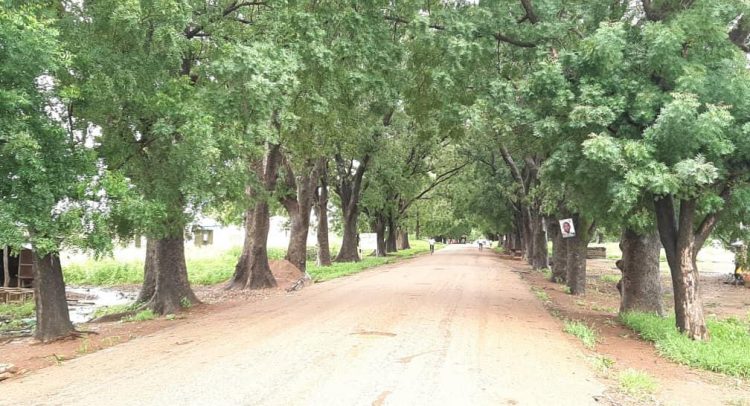“This is environmental sabotage” – A Rocha Ghana slams tree felling on Atomic-Kwabenya highway – Nsemkeka
Environmental advocacy group A Rocha Ghana has condemned the indiscriminate felling of trees along the Atomic-Kwabenya Highway in Accra, describing it as “environmental sabotage” that threatens Accra’s fragile green cover.
In a press statement issued on Tuesday, May 20, the organisation called on the Ghana Atomic Energy Commission to immediately halt the tree cutting and demanded a clear, enforceable plan for replanting and maintaining vegetation along the stretch.
“Indiscriminate tree removal without a proper maintenance and replacement regime leads to environmental degradation, increased urban heat, and loss of biodiversity,” part of the statement said.
The group insisted that if trees must be removed, “every removed tree should be replaced with two or more native species in suitable locations, and strict monitoring should ensure their survival.”
A Rocha Ghana stated that sustainable urban development requires a balance between infrastructural progress and ecological responsibility.
The organisation noted that the Atomic-Kwabenya tree arcade remains one of the few green canopies surviving the city’s rapid and often unregulated urban expansion, stressing that there is a deliberate ploy to eliminate these trees under the guise of development.
The group cited a troubling example from last year, when two trees were hurriedly felled, allegedly with the support of the Ghana Atomic Energy Commission, to make way for the construction of a fuel station near the Maker’s House Chapel driveway.
“This development is very unfortunate and needless, considering that Urban Roads had to pause construction works after public outcry to redesign the road to protect the trees,” the statement said.
It continued: “Now that the plan is set, other agents are moving in to deliberately destroy the trees gradually. This is environmental sabotage and shameful.”
A Rocha Ghana also criticised what it called “a lazy approach” of cutting down trees at the slightest hazard, and urged city planners and public agencies to adopt more proactive strategies for urban forest maintenance.
“Let’s be more proactive in the future to prevent such needless hazards and collateral damage,” the statement added.

